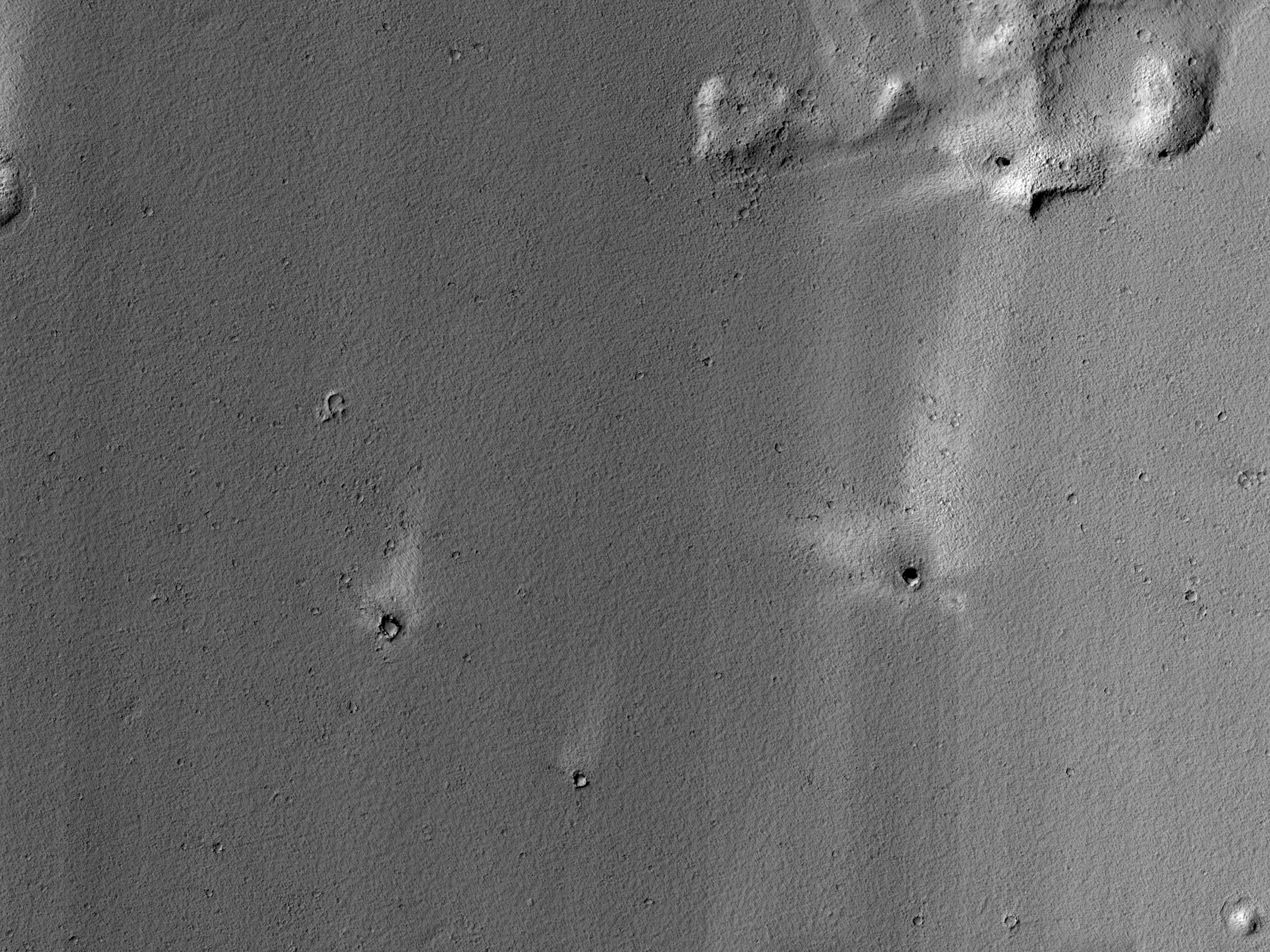This image is of a small section of the Cerberus Fossae, which is a series of troughs and pits in the eastern equatorial region of Mars.
There are two prominent types of craters (semi-circular depressions) in this observation.
The first are pits in the upper half of the image, which formed through collapse of the surface into underground caverns that are part of the Cerberus Fossae.
The second are impact craters in the lower section that formed through the collision of meteoroids into the planet’s surface.
Interestingly, these two types of craters show different patterns of wind streaks, which are caused by the wind flowing through and around landforms and then removing dust and sand in some places and depositing these sediments in other places. The removal and deposition of these materials result in different surface colors because the dust, sand and bedrock have different optical properties.
ID:
ESP_077931_1885date: 12 March 2023
altitude: 277 km
https://uahirise.org/hipod/ESP_077931_1885
NASA/JPL-Caltech/University of Arizona
#Mars #science #NASA
